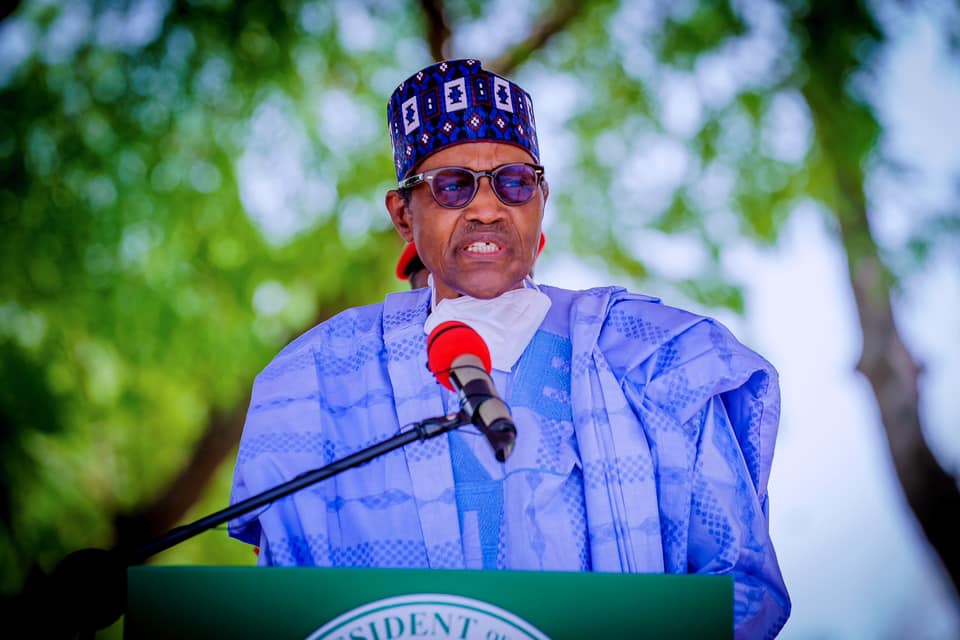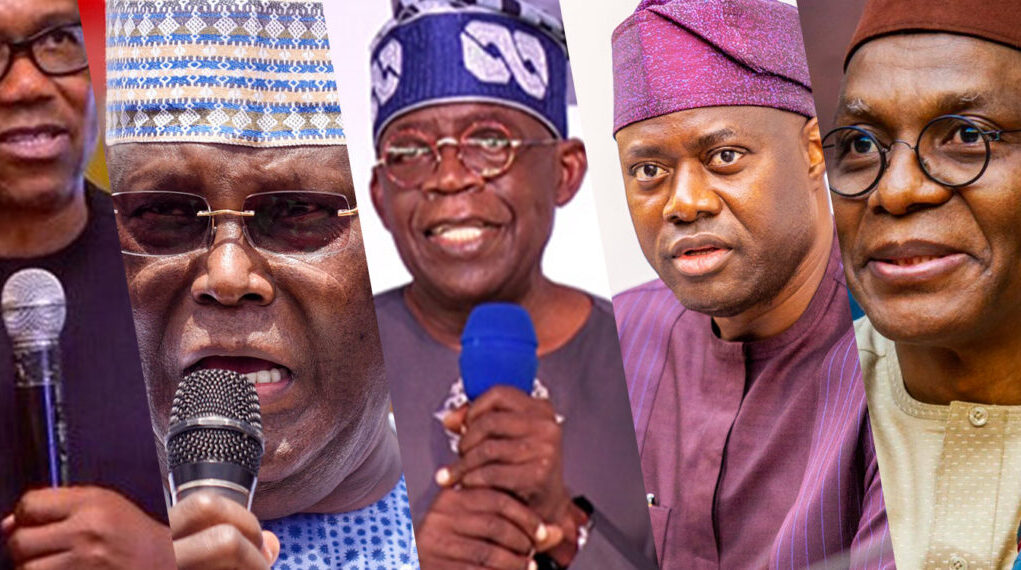
The 25 February presidential and federal legislative elections left some stunning upsets in their wake as many commentators did not foresee the results in their forecasts and analyses.
There may be more upsets in the gubernatorial and state assembly elections on Saturday based on the surprises of the 25 February elections.
Some commentators have said such upsets were rare in the past because most of the big victims are powerful political forces in their various territories. This time, they were beaten to their game in their backyards. Quite shocking and stunning!
While the upsets rattled the victims, they have been a source of delight to their political opponents. Some have become objects of excoriation and political caricaturing within the country’s buzzing cyberspace.
However, one major takeaway from the upsets, according to some observers and analysts, is that the Nigerian electoral process, warts and all, is making incremental improvement.
Because politicians are incurable optimists, some of the big losers have picked themselves up and moved on while also thinking of their next moves. To them, in politics, you win some, you lose some.
However, some, believing that they were rigged out, have said they would challenge their losses at the tribunal, which is the civilised thing to do rather than inciting their supporters to violence.
Contents
Bola Tinubu
The City Boy, Bola Tinubu, now the president-elect, lost Lagos State, his stronghold for the past two decades, to the rampaging Labour Party (LP).
After the votes were sorted and collated by INEC, Mr Tinubu, a former governor of the state, was left trailing by LP’s Peter Obi. Atiku Abubakar of the PDP came a distant third.

While Mr Obi polled 582,454 votes, Mr Tinubu scored 572,606 votes.
Mr Tinubu, who is dubbed the godfather of Lagos politics, also lost his local government, Ikeja LGA, to Mr Obi. He scored 21,276 as against Mr Obi’s 30,004 votes.
It was the first loss the president-elect ever experienced in Lagos since he became the generalissimo of the politics of the state.
Anyone he backed in previous presidential elections in the Fourth Republic always won the state. He reportedly supported then-President Goodluck Jonathan of the PDP in 2011 despite having a candidate of his party, Nuhu Ribadu, of the defunct Action Congress of Nigeria (ACN), on the ballot. Mr Jonathan won the election by a wide margin.
One major irony of Mr Tinubu’s loss on his own turf is that his party, the APC, won in the 2015 and 2019 presidential elections when he was not even the presidential candidate of the party. Analysts have been asking: How could he lose when he was the one on the ballot? That’s quite telling that he needs to reevaluate and reassess his politics in the state.
One reason adduced for his loss by his opponents is that he has allegedly turned the state into his personal estate to the detriment of the masses and the general development of the system
He has 11 March to prove his mettle again otherwise, he may discover his over two decades hold on the politics of the state will no longer be there should the opposition take over the state’s gubernatorial seat.
The gubernatorial candidate of the APC in the state, Governor Babajide Sanwo-Olu, has been making last-minute efforts to ensure he wins.
However, if Lagos’ governorship seat goes to the opposition, Mr Tinubu would not be the first president-elect not to have his party in control of his home state. Then President-elect Olusegun Obasanjo’s home Ogun State was won by the candidate of the Alliance for Democracy, Olusegun Osoba, in 1999.
Muhammadu Buhari
Muhammadu Buhari, now a lame-duck president, failed to deliver his home state, Katsina, to his party as the PDP’s presidential candidate, Atiku Abubakar, took the state.
The former vice president beat the APC’s candidate, Mr Tinubu, with 6,752 votes while the NNPP’s candidate, Rabiu Musa Kwankwaso, came third.
The loss of the state to the PDP in the election is quite shocking because it was one of the states that analysts had called for the APC in pre-election projections.

Some have attributed the loss of the APC to internal sabotage in the party. The governor of the state, Bello Massari, following the electoral upset, sacked his commissioner for works and housing and some other top government functionaries.
Those familiar with the issue said the dismissal of the government functionaries was not unconnected with their alleged connivance with those in the opposition to down the APC in the presidential election.
The APC defeated other political parties in the state in the 2015 and 2019 presidential elections.
Governor Nasir El-rufai
Although not a direct candidate in the 25th February elections, nevertheless the severe beating dealt to Governor El-rufai’s party in Kaduna State is a big loss to him.
The PDP cleared all three senatorial seats in the state, leaving the APC, the ruling party, stranded.
![Governor Nasir El-Rufai [PHOTO CREDIT: Nasir El-Rufai]](https://media.premiumtimesng.com/wp-content/files/2022/02/273112370_508707630619225_5299381297805505928_n.jpg)
Atiku Abubakar, the presidential candidate of the PDP, also won in the state. Some analysts have attributed President Buhari not being on the ballot as the reason for this.
The opposition party also cleared most of the House of Representatives seats, winning 10 out of 16. The APC won four while the LP won two. The governor’s only consolation is that his son, Mohammed, was declared the winner of Kaduna North Federal Constituency on the ticket of the APC.
The APC won both the 2015 and 2019 presidential elections in the state and also cleared most of the National Assembly seats. The recent loss is a reversal of its political fortunes made in the past.
Mr El-rufai, one of the major forces who insisted power must rotate back to the southern part of the country for equity’s sake, failed spectacularly to win the state for Mr Tinubu, now president-elect.
Given the results of the 25 February elections, Mr El-rufai, APC’s governorship candidate, Uba Sani, and the party’s House of Assembly candidates must be jittery as they march to the polls on Saturday.
Umar Ganduje
The outgoing governor of Kano State is a major ally of President-elect Tinubu. He played a prominent role in his emergence as the presidential candidate at the primary election last year.
Mr Ganduje, however, failed to deliver his state to the candidate of his party when it mattered most. The APC came second to the NNPP in the presidential election.
His son, Abba, also lost his bid to represent the Tofa/Tofa/Rimingado Federal Constituency in the House of Representatives to Tijjani Jobe, candidate of the NNPP.

The presidential candidate of the NNPP, Rabiu Kwankwaso, a former governor of the state, confirmed his bonafides as the undisputed political leader in the North-west state going by the way his party routed the APC and PDP.
Aside from winning the presidential election in the state, the NNPP also won two of the senatorial districts and cornered most of the House of Representatives seats which were hitherto held by the APC.
Another major casualty of the routing of the APC by the NNPP in the state is Kabiru Gaya, another former governor of the state seeking a fifth term in the Senate from Kano South. Mr Gaya lost to the candidate of the NNPP, Abdulrahman Sumaila.
The APC coming second in the presidential election in Kano is an upset because it won handsomely in the state in 2015 and 2019.
Ifeanyi Okowa, Delta PDP
The outgoing governor of Delta State also suffered a big embarrassment in the election.
Despite being the vice presidential candidate of the PDP, the Labour Party won the state in the presidential election to the surprise of many observers.
It was a princely win for the LP as it polled 341, 866 votes against the PDP’s 161,600 and the APC’s 90,183. The PDP had won all previous presidential elections in the state since 1999.
The PDP also only managed to win one senatorial seat losing the other two to the APC, another major loss to the ruling party in the South-south state.
One of the PDP’s longtime members, Ndudi Elumelu, also lost his return ticket to the House of Representatives to Ngozie Okolie of the LP. If he had won, he would have made a fifth-term return to the Green Chambers.
Mr Elumelu was first elected to the House of Representatives in 2007 on the platform of the PDP. He is the current minority leader of the House.
FCT falling to the LP
Had Philip Aduda won his reelection to the Senate on the ticket of the PDP, he would have been a fourth-term member in the 10th Senate.
Sadly for him, he will have to wait for another election cycle as he lost to the candidate of the LP, Ireti Kingibe.
ALSO READ: #NigeriaDecides2023: FCT Senator-elect, Ireti, speaks on victory, promises to provide adequate representation
It was an epic loss most observers did not see coming. Mrs Kingibe polled 202,175 votes to emerge as the winner while Mr Aduda scored 100,544.
The FCT senate seat did not only go the way of the LP, its presidential candidate, Mr Obi, also won in the nation’s capital, polling 281,717 while APC’s Mr Tinubu trailed him with 90,902. PDP’s Atiku Abubakar polled 74,199.
In fact, the LP won in all the 10 polling units at the Presidential Villa in the presidential election.
Cross River going the way of LP
Before the 25th February elections, the PDP had always won in all the previous presidential contests in the south-south state.
However, in a shocking twist, the Labour Party dislodged the PDP in its traditional stronghold in the presidential election.
In fact, the PDP’s Atiku came a distant third in the presidential election with 95,425 votes. Mr Tinubu came second with 130,520 votes, behind Mr Obi who polled 179,917 votes.
The governor of the state, Ben Ayade, also lost his quest to return to the Senate on the platform of the APC to Jarigbe Agom Jarigbe, incumbent senator for Cross River North and candidate of the PDP.
The defeat of the duo of the APC and PDP to the LP in the state is seen as a major upset to the top guns in the two parties.
They- APC and PDP – probably underestimated the strengths of the LP and its major canvassers, the ‘Obidient Movement, an amorphous group of young people and those disenchanted with the way Nigeria is being governed at the national and sub-national levels in the country.
The G-5 governors
Of all the G-5 governors, only the arrowhead of the group, Nyesom Wike of Rivers State, managed to deliver to his favoured party in the presidential election, the APC.
Although Mr Obi came second in the election in the state, his party has questioned the credibility of the votes and has vowed to challenge the result in court.
The G-5 governors are PDP governors opposed to the candidature of Atiku. They vowed not to work for him in their respective states for failing to persuade the national chairman of the party, Iyorchia Ayu, to give up the seat so that a southerner could emerge as the national chairman of the party.
The group said Mr Ayu leave to allow for regional balance as both he and Atiku are from the northern part of the country.
The G-5 governors, however, could not agree on the candidate to support in place of Atiku.
Apart from Benue State Governor, Samuel Ortom, who openly declared support for LP’s Peter Obi, the rest members of the G-5 – Governors Seyi Makinde of Oyo State, Ifeanyi Ugwuanyi of Enugu State, Okezie Ikpeazu of Abia State and Nyesom Wike of Rivers- did not make any categorical endorsement.
![G-5 Governors: Governors; Seyi Makinde, Samuel Ortom, Okezie Ikpeazu, Nyesom Wike, Ifeanyi Ugwanyi [PHOTO: TW @thecableng]](https://media.premiumtimesng.com/wp-content/files/2022/11/FiYwur0XgAAhhb6.jpg)
It’s believed though that Messrs Wike and Makinde worked for the APC in the presidential election because the APC’s candidate won in Oyo and Rivers states respectively.
In fact, in Oyo State, the APC also won the three senatorial seats and eight out of the 14 seats in the House of Representatives. The ruling party in the state won four of the remaining seats while the elections for two seats were declared inconclusive.
The performance of the APC in the state has reportedly pitted some PDP candidates who lost in the National Assembly elections against Governor Makinde who is seeking re-election. They believe the governor sacrificed their elections to spite Atiku.
Mr Makinde will have to redouble his efforts if he will retain his seat on Saturday, given the slump in the political stock of the PDP in the state.
The trio of Messrs Ugwuanyi, Okezie and Ortom also lost their bid to go to the Senate.
While Mr Ugwuanyi lost to LP’s Okey Ezea in Enugu North, Mr Okezie lost to APGA’s Eyinnaya Abaribe in Abia South. Mr Abaribe was in the PDP before defecting to APGA to pick up the senatorial ticket after his bid for the PDP governorship ticket was blocked.
Mr Ortom’s loss is even more devastating. He lost to the candidate of the APC, Titus Zam, a former political aide of his between 2015 and 2017.
Mr Zam served as Special Adviser to Mr Ortom on the Bureau of Local Government and Chieftaincy Affairs but decided to stay back in the APC when the outgoing governor defected to the PDP back in 2018 ahead of the 2019 general elections.
Simon Lalong
It was a hat-trick of losses for Governor Simon Lalong of Plateau and Director General of the Tinubu/Shettima Presidential Campaign Council as he lost his bid to the Senate for Plateau South to the candidate of the PDP, Napoleon Bali, a retired air vice marshall.
![Governor of Plateau State, Simon Bako Lalong [PHOTO CREDIT: @The Plateau State Governor’s Directorate Of Press]](https://media.premiumtimesng.com/wp-content/files/2022/05/Simon-Lalong-531x299-1.jpg)
Mr Lalong, a former Speaker of the state House of Assembly, also lost his polling unit to LP in the presidential poll. The polling unit labelled PU015 is in Kurumbo Ward B in the Shendam Local Government Area of the state.
It did not stop there. The leader of the APC in the state and DG of the APC PCC failed to deliver the state to the APC in the presidential election which Mr Obi won, trailed by Mr Tinubu and Atiku.
No previous general elections in Nigeria have delivered so many stunning results. Yet, it is still half time in the 2023 polls. Will the trend continue on Saturday when the states elect their governors and lawmakers?





















































